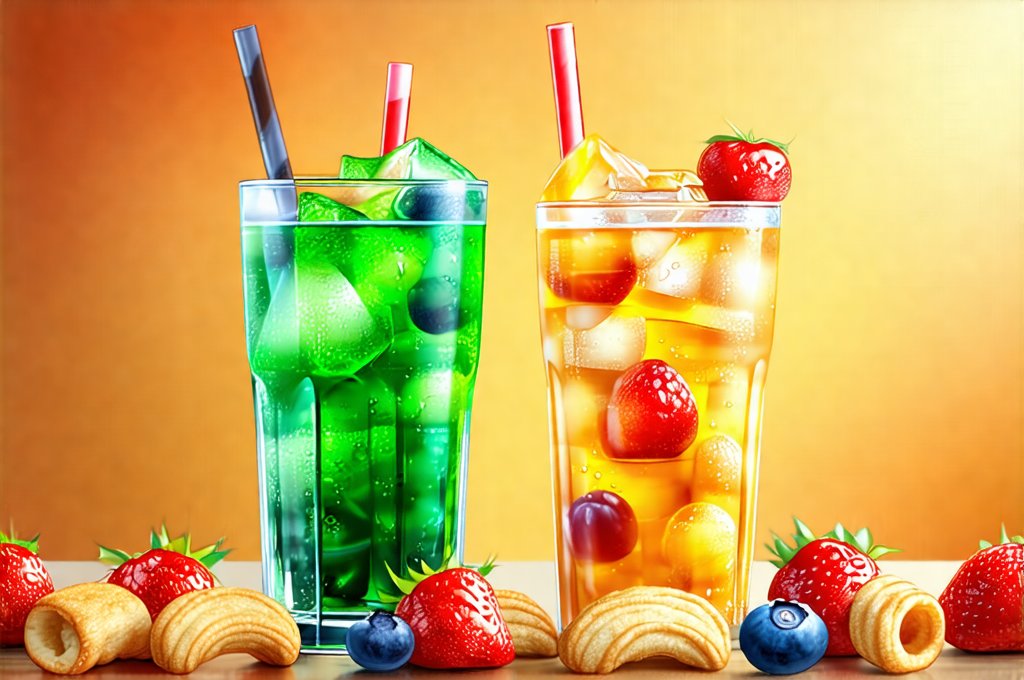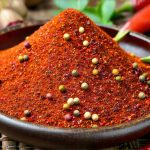The human digestive system is a remarkably complex ecosystem, meticulously balanced to efficiently process food and absorb nutrients. However, this delicate balance can be easily disrupted by modern dietary habits – particularly the widespread consumption of chemically flavored snacks and carbonated beverages. These seemingly innocuous items often contain ingredients that significantly impact stomach acidity, potentially leading to discomfort, indigestion, and even long-term digestive issues. Understanding why these disruptions occur is crucial for making informed choices about our diet and maintaining optimal gut health.
Beyond simply satisfying cravings, the foods we eat directly influence the pH level within our stomachs. A healthy stomach requires a specific acidic environment (typically between 1.5 and 3.5 pH) to effectively break down food, activate digestive enzymes, and protect against harmful bacteria. When this acidity is thrown off kilter – either too high or too low – the entire digestive process suffers, leading to a cascade of potential problems. The seemingly simple act of choosing a chemically flavored snack over a natural alternative can have surprisingly far-reaching consequences for our overall well-being, highlighting the importance of mindful eating and ingredient awareness. You can learn more about how to balance gut acidity and improve nutrient absorption through smart eating choices.
The Role of Artificial Flavors and Additives
Artificial flavors are designed to intensely stimulate taste receptors, often exceeding the intensity of naturally occurring flavors. This intense stimulation can trigger an overproduction of stomach acid as the body anticipates a larger influx of food than is actually present. Furthermore, many artificial flavorings aren’t readily digested – meaning they linger in the stomach for longer periods, continuing this acidic output even after eating has stopped. Additives like emulsifiers, commonly found in processed snacks to improve texture and shelf life, can also disrupt digestive processes by interfering with the absorption of nutrients and potentially increasing gut permeability (“leaky gut”).
- Consider the difference between biting into a fresh apple versus consuming an artificially apple-flavored candy. The apple contains fiber and natural sugars that are easily digested, while the candy offers only concentrated sweetness and artificial compounds.
- This difference in digestibility directly impacts stomach acid production and overall digestive workload.
The presence of certain food colorings can also contribute to digestive discomfort for some individuals. While not all artificial colors cause issues, specific dyes have been linked to sensitivities that manifest as bloating, gas, or changes in stomach acidity. It’s important to remember everyone reacts differently; what doesn’t bother one person may trigger symptoms in another. The sheer volume of these additives in many processed foods represents a constant challenge to the digestive system’s ability to maintain equilibrium. If you are travelling and need gut-safe options, consider microbiome-safe travel snacks.
Carbonation and Its Impact on Stomach Acidity
Carbonated drinks introduce significant amounts of dissolved carbon dioxide into the stomach. This increases gastric pressure, potentially leading to bloating, belching, and even acid reflux. While moderate consumption may not pose issues for everyone, frequent intake of carbonated beverages can contribute to a chronically elevated acidity level, weakening the lower esophageal sphincter (LES) – the muscle that prevents stomach acid from flowing back into the esophagus.
The resulting heartburn or acid indigestion isn’t just uncomfortable; it can also erode tooth enamel over time and potentially damage the esophageal lining. Furthermore, the sugar content often found in carbonated beverages exacerbates these issues by promoting bacterial imbalances within the gut microbiome, which further disrupts digestive function. – Diet sodas, while seemingly a healthier alternative to sugary drinks, often contain artificial sweeteners that can have their own detrimental effects on gut health and potentially increase acid reflux symptoms. Understanding why carbonated drinks worsen indigestion is crucial for making informed choices.
Understanding Gastric pH Balance
Maintaining proper gastric pH is vital for several reasons beyond just food breakdown. A sufficiently acidic environment helps to kill harmful bacteria ingested with food, preventing infection. It also aids in the absorption of essential nutrients like iron, vitamin B12, and calcium – all crucial for overall health. When stomach acidity is consistently low (hypochlorhydria), these processes are compromised, increasing susceptibility to deficiencies and potentially leading to fatigue, weakened immunity, and other health problems.
- Hypochlorhydria can be caused by several factors beyond diet, including aging, stress, and certain medications, but dietary choices play a significant role in exacerbating or mitigating the issue.
- Conversely, excessive acidity (hyperchlorhydria) can lead to gastritis, ulcers, and acid reflux as described earlier.
The interplay between food, lifestyle, and gastric pH is complex. Factors like stress levels, sleep quality, and physical activity all influence digestive function and impact how effectively our bodies regulate stomach acidity. A holistic approach that addresses these interconnected elements is essential for maintaining a healthy gut and preventing digestive imbalances. Consider incorporating probiotic-rich foods to soothe acid reflux, GERD and stomach discomfort.
The Gut Microbiome Connection
The gut microbiome – the trillions of bacteria residing in our digestive tract – plays an instrumental role in regulating stomach acidity. These bacteria help to ferment undigested carbohydrates, producing short-chain fatty acids (SCFAs) that contribute to a healthy gut lining and overall digestive function. However, chemically flavored snacks and carbonated beverages can negatively impact the microbiome’s composition.
Artificial sweeteners, for example, have been shown to alter the types of bacteria present in the gut, often leading to a decrease in beneficial species and an increase in potentially harmful ones. This imbalance (dysbiosis) disrupts the production of SCFAs and weakens the gut barrier, making it more permeable and increasing inflammation. – A disrupted microbiome can also contribute to increased stomach acidity as certain bacterial strains produce compounds that stimulate acid secretion. It is important to note that starting probiotics may initially worsen symptoms, but there are ways to manage this.
Strategies for Supporting Stomach Acidity Balance
While completely eliminating chemically flavored snacks and carbonated drinks may not be realistic or desirable for everyone, there are several strategies we can employ to mitigate their negative effects and support a healthier digestive system. Prioritizing whole, unprocessed foods – rich in fiber, vitamins, and minerals – provides the building blocks for a robust gut microbiome and balanced stomach acidity.
- Hydrate with water: Drinking plenty of water helps to dilute stomach acid and promotes healthy digestion.
- Incorporate fermented foods: Foods like yogurt (with live cultures), kefir, sauerkraut, and kimchi introduce beneficial bacteria into the gut, supporting microbiome diversity.
- Manage stress: Chronic stress can significantly impact digestive function; practicing relaxation techniques like yoga or meditation can help to mitigate these effects.
- Chew food thoroughly: Proper chewing breaks down food more efficiently, reducing the burden on the stomach and promoting better nutrient absorption.
- Be mindful of portion sizes: Overeating can overwhelm the digestive system and lead to increased acidity.
Ultimately, maintaining stomach acidity balance is about making conscious choices that support our overall health and well-being. By understanding the impact of chemically flavored snacks and carbonated drinks on our digestive systems – and adopting strategies to mitigate their effects – we can cultivate a healthier gut and enjoy optimal digestion for years to come. You may also find gut-safe snacks helpful in your daily routine, especially when on the go or recovering after workouts. And remember to look at probiotic rich options even with busy schedules!


















